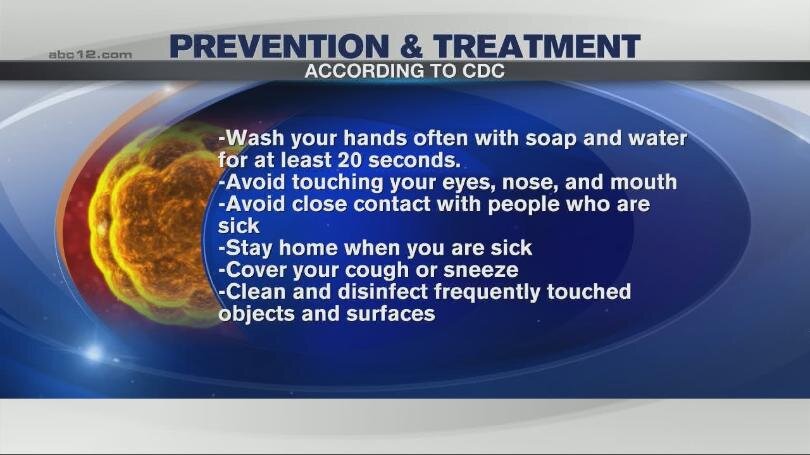Preparing for the Coronavirus: Cavendish
/On Tuesday, Feb. 25, the Centers for Disease Control & Prevention (CDC) advised Americans to prepare, not panic, for the spread of the coronavirus (COVID-19). The CDC’s message was clear "It's not so much a question of if this will happen anymore, but more really a question of when it will happen — and how many people in this country will have severe illness," said Dr. Nancy Messonnier of the CDC. Health Officials Warn Americans to Plan for the Spread of Coronavirus in U.S.
On Wednesday, Vermont Department of Health weighed in with Patsy Kelso, the state’s epidemiologist saying, “It’s getting harder and harder to say with a straight face that we can contain this virus to the countries where it’s already impacting people.” Kelso said if the outbreak spreads to the United States, it will “definitely” reach Vermont. Vermont Health Officials Prepare for ‘inevitable’ U.S. Arrival of Coronavirus.
Since Tuesday, the first case in the U.S. (California) of community exposure has been found. The infected person reportedly did not have a history of travel to a region where the virus is spreading — or exposure to another person known to have COVID-19. The number of new cases reported outside China now exceeds the number of new cases in China for the first time
COVID-19 is transmitted similarly to the flu and can be transmitted by people who are infected but don’t show symptoms. Fortunately, 80% of those infected will have mild symptoms, requiring little to no medical intervention. Those most at risk for significant illness and potentially death are those over 60 and those with pre-existing medical conditions.
Why the concern: This is a new virus in humans and it’s unclear what it can do.
Cavendish’s Risk: We are part of the Okemo Valley, which includes Okemo Mountain Resort, where weekends can bring in 10,000 people or more from not only major cities, but other parts of the world. In addition, we have a large second home owner population. In short, the potential is there for COVID-19 to impact our community and therefore it’s important not to ignore the CDC’s call to be prepared and as Dr.Messionnier noted, it’s better to be over prepared.
In such an event, people should be prepared for the possibility of disruptions to their daily lives which could include closing schools, working from home and delaying elective medical procedures.
This is the same type of basic preparedness that we remind people about periodically due to the weather, power outages and flooding that Cavendish can experience. As such, the Cavendish Connects website has a special page on Emergency Preparedness.
Since quarantine is a potential, be proactive and talk to your employer about the ability to work at home. Make sure you have sufficient:
• food
• prescription medications, oxygen, over the counter medications and other medical supplies
• incidentals such as toothpaste, toilet paper
• pet food and supplies
• a plan in place for someone who might become ill
• activities to stay occupied, particularly for children
What a quarantine for our area could look like remains to be seen, but it’s prudent to think about two weeks.
Prevention measures to stop the spread: Because COVID-19 spreads similarly to flu and colds, the biggest risk is contact with someone who is infected. Think Cover & Wash.
• Cover your cough with your arm or tissue not your hand
• Wash your hands throughout the day with soap & water, using hand sanitizer when that’s not available. Hand washing done correctly is one of the best 20 second prevention tools and is the cornerstone of all infection prevention programs. Proper hand washing includes using soap (either bar or liquid), rubbing the backs of hands, between your fingers and under your nails and 20 seconds. To learn the proper way to wash your hands, watch the World Health Organization’s (WHO) hand washing video.
• Stay at home if you are sick. Keep your child out of school if they are sick
• Avoid people who are sick and avoid touching your face
What about masks? The CDC does not recommend the routine use of masks outside of workplace settings (in the community). For those who are first responders and working in a setting where they would come in contact with patients with respiratory illness, the recommendation is an N95 respirator. CDC
Learn more at Prevent Flu, Colds & Coronavirus
The Cavendish Facebook page will be providing updates and information as it is received.
Additional Resources
• A Guide: How to Prepare Your Home for Coronavirus
• Just for kids: A Comic Exploring the New Coronavirus
• Vermont Health Department: 2019 Novel Coronavirus Current Status in Vermont


